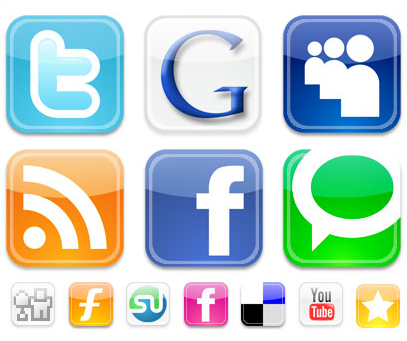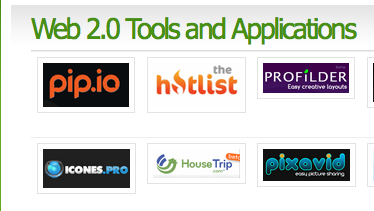E-learning concepts - Table of Content
Web 2.0

The phenomenon web 2.0 brought a new age in Internet history. This expression was first pronounced in 2004 in a conference for web technology as a collective noun for software help editing contents and making connections on the worldwide web. At that time it was only called as web 2.0 tools. However soon it became clear that the rapid propagation of broadband Internet and the change from readable web to re-writable web is so deep in everyday communication and slowly in all segments of social life which can only be approached as a complex phenomenon.
In the background there is the rapid development of hardware - equipments suitable for creating saving and transmitting digital voice and video. Arhitectures with processors capable to play and store 3D animation were produced. Despite of it the significance of web 2.0 is not hidden in technological results but in the change of how people approach things. Real time sharing of information and knowledge became reality and it is not restricted for only a narrow, upper class of the society. We can raise questions, answer, think together in communities organized on the net, using all medium which can be imagined easily - this is web 2.0.
The web 2.0 phenomenon can result changes in the entire education not only in e-learning solutions. The major consumers of options provided (video sharing, file sharing, online communication tools, online games, etc.) are the members of the net generation and most of them are still sitting in desks.They will not ask the oppinion of schools about whether they should connect to a virtual community about any subject they are interested in.
 Collections
Collections
A young lady, Orli Yakuel from Israel, started the international portal GO2WEB20 in 2006 (https://www.facebook.com/go2web20/) as a source for web 2.0 applications. This is more than just a passion! The number of fans is respectable!
 Exercises
Exercises
"In fact, one of the saddest but most common conditions in elementary school computer labs (when they exist in the developing world), is the children are being trained to use Word, Excel and PowerPoint. I consider that criminal, because children should be making things, communicating, exploring, sharing,not running office automation tools." (Nicholas Negroponte, Massachusetts Institute of Technology's Media Lab)
1. Do you agree? Please come to the Agora, to disccuss!